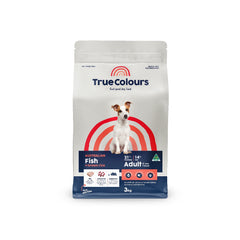Understanding Itchy Skin in Dogs: Causes and Treatment

When your dog is constantly suffering from itchy skin, they may be uncomfortable and irritated. But don’t worry; there are several potential causes of itchy skin in dogs, ranging from allergies to infections, and ways to help them find relief. The most common cause of itchy skin in dogs is allergies. In this case, the first step is determining what type of allergy your dog has (e.g., food allergy or environmental allergy) and creating an appropriate treatment plan. Switching to a grain-free dog food, and soap-free shampoo may help improve your dog's skin health and reduce itching. You should also consult a veterinarian for further advice on how to best treat your dog's skin issues.
Identifying The Causes of Itchy Skin in Dogs.
A range of factors can trigger itchy skin in dogs. Common causes can include allergies, parasites like fleas and ticks, fungal and bacterial diseases, dietary issues, and contact or environmental irritants. In addition, some breeds are especially prone to skin allergies or other skin disorders that cause irritation and itching. Identifying the specific cause of your pup’s itchy skin requires consulting a veterinary professional for diagnosis.
Allergies
Allergies are one of the most common causes of skin problems in dogs and can range from environmental allergens such as pollen, dust, or mold; to food allergens such as chicken; to various topical allergens like carpeting cleaning products or flea collars. If you suspect your dog is suffering from an allergy, you could eliminate what you consider has been the trigger for a period of 7-10 days. This can quickly rule out some obvious causes and can help your vet to diagnose it.
What are the most common food allergies in dogs?
You may be surprised to read that the top food allergens in dogs are caused by proteins. Each time a pet eats food containing these substances, the antibodies react with the antigens, and symptoms occur.
Beef
Beef is one of the most common ingredients in a lot of pet foods, which may be the reason it’s the most common food allergen. When dogs are fed the same food day in and day out, their immune system can build up an intolerance to this protein.
Causes of Skin Infections in Dogs
Skin infections can also result in itchy skin and can be caused by a variety of
factors, including parasites such as fleas or mites. We often treat our pets for fleas and for some dogs, irritations can remain, long after the fleas have left. Flea allergy dermatitis (an allergic reaction to flea saliva) is one of the most commonly diagnosed itchy skin complaints in both dogs and cats. Products such as Advantage can relieve this and in severe cases, your vet will be able to provide your dog with corticosteroids. Prevention is always the best option! Maintain your regular flea, tick and worming program for your dog.
Bacterial infections will require a course of antibiotics prescribed by your vet and fungal infections may need special shampoos for relief.
Causes of Dry Skin in Dogs
Just like humans, excessive bathing and lack of moisture in the air can cause skin dryness resulting in itching for your pup. A lotion-based shampoo may help provide some relief with regular application and using a humidifier in your home can help ke ep the air moist enough that it won’t dry out his skin too much.
ep the air moist enough that it won’t dry out his skin too much.
We recommend soothing shampoos such as Fido's Soap-Free range of shampoos or the Aloveen Oatmeal Shampoo and conditioner. Try not to over-wash your dog and if possible avoid using the hair dryer as this can irritate and dry the skin.
What is Contact Dermatitis in Dogs?
Contact dermatitis is an inflammatory reaction that occurs when something touches the surface of the skin and triggers a reaction in the body’s immune system – think reacting to poison ivy plants after brushing up against them while outdoors. Avoid any substances they come into contact with (lawn chemicals, etc.) that may potentially give them contact dermatitis rashes and if this persists make sure to see your veterinarian right away!
Stress and anxiety in Dogs
Like humans, dogs also suffer from stress which often manifests as scratching at their own coats leading to open sores which become prone to bacterial infection requiring some extra TLC. You can stem the progress of stress related itching, scratching and licking at the first sign. Stay vigilant and contact your vet should symptoms become worse. For more information about the symptoms of stress and anxiety in dogs, learn more here on our blog - Signs your dog is suffering with anxiety and how to treat it.
Can Fatty Acids Supplementation Help Itchy Dogs?
Fatty acid supplementation has been linked to alleviating itching symptoms associated with having sensitive skin for many dogs. Some allergic reactions are due to a lack of essential fatty acid levelsin their diet. We recommend solution based foods that contain this ingredient naturally such as True Colours Adult Fish & Brown Rice or adding an Omega supplement to their diet such as Fido's Pernaease Powder .
© weknowpets 2023







